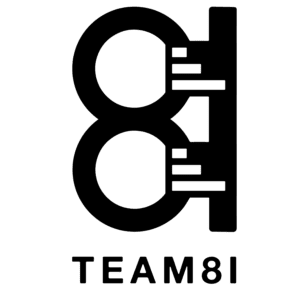In today’s rapidly shifting sectors, developing a strong supply chain has become important for businesses aiming to stay competitive. With global disruptions and evolving customer expectations, companies are increasingly focused on developing supply chains that adapt quickly and recover from unexpected events. A versatile supply chain anticipates challenges and creates pathways for continuous improvement, allowing organizations to respond effectively when change occurs.
Let’s explore the key strategies that can help create a resilient, adaptable supply chain ready to meet the demands of an evolving market.
Assess Current Supply Chain Risks
Conducting a thorough risk assessment helps determine areas prone to disruptions, whether due to natural disasters, geopolitical events, or market fluctuations. Businesses can assess every link in the supply chain, from sourcing to delivery, to pinpoint weaknesses and prioritize them for improvement.
Engaging stakeholders in risk analysis fosters collaboration and generates diverse perspectives on challenges. Additionally, implementing risk management strategies such as scenario planning allows organizations to prepare for various emergencies.
Foster Strong Supplier Relationships
Regular communication guarantees that all parties stay informed about shifts in demand, potential disruptions, and capacity constraints. Engaging suppliers as partners rather than mere vendors can lead to shared innovation and more efficient problem-solving.
Investing time in relationship-building helps organizations negotiate better terms, secure priority during crises, and improve the reliability of supply sources.
Implement Agile Practices
Agile methodologies highlight flexibility, enabling organizations to quickly turn in response to disruptions or new opportunities. Integrating continuous operations allows organizations to make incremental adjustments based on real-time feedback, improving responsiveness.
Teams can continuously innovate and improve workflows by fostering an experimental culture. Additionally, cross-functional collaboration encourages swift decision-making, eliminating processes that can delay responses.
Improve Visibility
Implementing technologies such as RFID, IoT, and advanced analytics facilitates tracking and data sharing. This transparency allows organizations to monitor inventory levels, shipment statuses, and supplier performance at every stage. Better accessibility helps identify potential bottlenecks and inefficiencies, enabling proactive problem-solving.
Moreover, access to accurate information supports better forecasting and demand planning, aligning supply with customer needs more effectively.
Monitor Market Trends
Regularly analyzing industry reports, consumer behavior, and technological advancements enables businesses to stay informed about emerging challenges and opportunities. Awareness of market fluctuations allows organizations to adjust sourcing, production, and inventory strategies proactively.
Companies that are aware of trends can react quickly to changes in client requirements, maintaining both their competitiveness and customer satisfaction.
Invest in Employee Training
Continuous education helps team members stay updated on the latest technologies, tools, and best practices. Personalized training programs allow workers to increase their skills, fostering adaptability within the organization and supporting each other during peak times or disruptions.
This lets the employees take ownership of their professional development, contribute more effectively to the organization’s goals, and drive process improvements.
Use Data Analytics
Organizations can extract valuable insights from vast data sets through advanced analytics tools to inform strategic planning and operational improvements. Data-driven decision-making enables businesses to identify trends, optimize inventory levels, and increase demand forecasting accuracy.
Implementing predictive analytics helps anticipate prospective disruptions within the supply chain, allowing for timely interventions. In addition, real-time data monitoring supports swift responses to arising issues, fostering agility.
Are you ready to build a strong supply chain that can withstand market fluctuations and disruptions? Our experts at Team 81 can help you develop and implement effective tactics to boost your supply chain’s resilience.Contact us today to learn more about our services!


